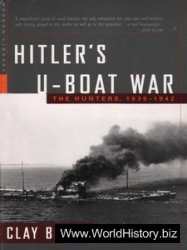As a neutral nation, the United States sought to continue its trade and commerce with the rest of the world even as the warring nations began to place restrictions on neutral traffic. French and British sea captains preyed upon American shipping, and although both were viewed in essentially the same light by the American government, the fact that Great Britain dominated the seas made her depredations more troublesome than those of the French. Furthermore, since the British depended so heavily upon sea power for survival, they faced constant pressure to keep fleets well manned. This task was difficult task because life in the Royal Navy was known to be harsh and demanding, and British sailors were prone to desert their ships whenever an opportunity presented itself.
There were few volunteers in the Royal Navy. Ships would spend months at sea and years away from home. The food and quarters aboard ship were unpleasant, as both could be infested with vermin. Discipline was administered with the lash or by keel-hauling. Press gangs were employed to "recruit" sailors from the slums of British cities, especially in time of war, when desertions ran high. This tactic had been in use for over 400 years to keep Royal Navy ships adequately manned. At one point, twelve British ships were stuck in Norfolk because of desertions—there had been 42,000 desertions in the Royal Navy by 1801.
American merchants, always looking for experienced sailors for their crews often encouraged British sailors to desert to the American merchant fleet. Americans were building 70,000 tons of shipping each year and needed 4,200 new sailors per year until 1808 to man merchant vessels. The result was that the press gangs, who forced reluctant young men into the Royal Navy with impunity, began to point the finger at deserted British sailors serving in American vessels. Royal Navy cruisers began stopping American ships and "impressing" sailors identified as deserters back into His Majesty's service. The fact that some of those sailors might have become American citizens, or in fact had not actually deserted at all, made little difference to the press gangs. Times were desperate, and desperate measures were called for.
Although American merchant ships lost many sailors to impressment, British deserters were plentiful enough to make up for those losses. Despite American protests, the British operated at will on the seas, and hundreds of American seamen were impressed. The British violated even their own rules when they got desperate enough. Some 8,000 bona fide U. S. citizens were eventually taken by force, which hurt shipping interests, merchants and families.
Impressment was seen by Americans as a violation of their neutral rights; the British promised not to take American citizens. The British idea of citizenship, however, was not the same as the American view: "Once an Englishman, always an Englishman" was their motto, and that was especially true in time of war. Americans resisted, but they were not innocent in the matter—they encouraged desertions through enticements and sold phony citizenship papers. They also advertised for sailors in neutral ports, promising higher wages and better treatment. American protests produced some releases, but it took time. The U. S. claimed that the American flag created de facto American territory and called British practices tical slavery," but impressment continued.
In 1806 Napoleon issued his Berlin Decree, thereby instituting what was known as his "Continental System." The Decree prohibited the import of British goods to any nation in Europe allied with France. Any ship that followed British trade rules was deemed to be a British ship and was therefore a legitimate target of the French Navy, which left American ships' captains between a rock and a hard place. French privateers felt free to capture any ship which the British had searched.
In 1807 Napoleon issued the Milan Decree to enforce the Berlin decree. The two acts constituted open economic warfare against Great Britain. When the British ruled in 1807 that ships bound for Europe had to stop and move their cargoes through England, France declared that all such goods were British property and seized them accordingly. As America was the most important neutral nation, American ships were directly affected. The restrictions emanating from both France and Great Britain inevitably rendered cargoes that did manage to evade the blockaders more valuable than ever, with predictable results.




 World History
World History









